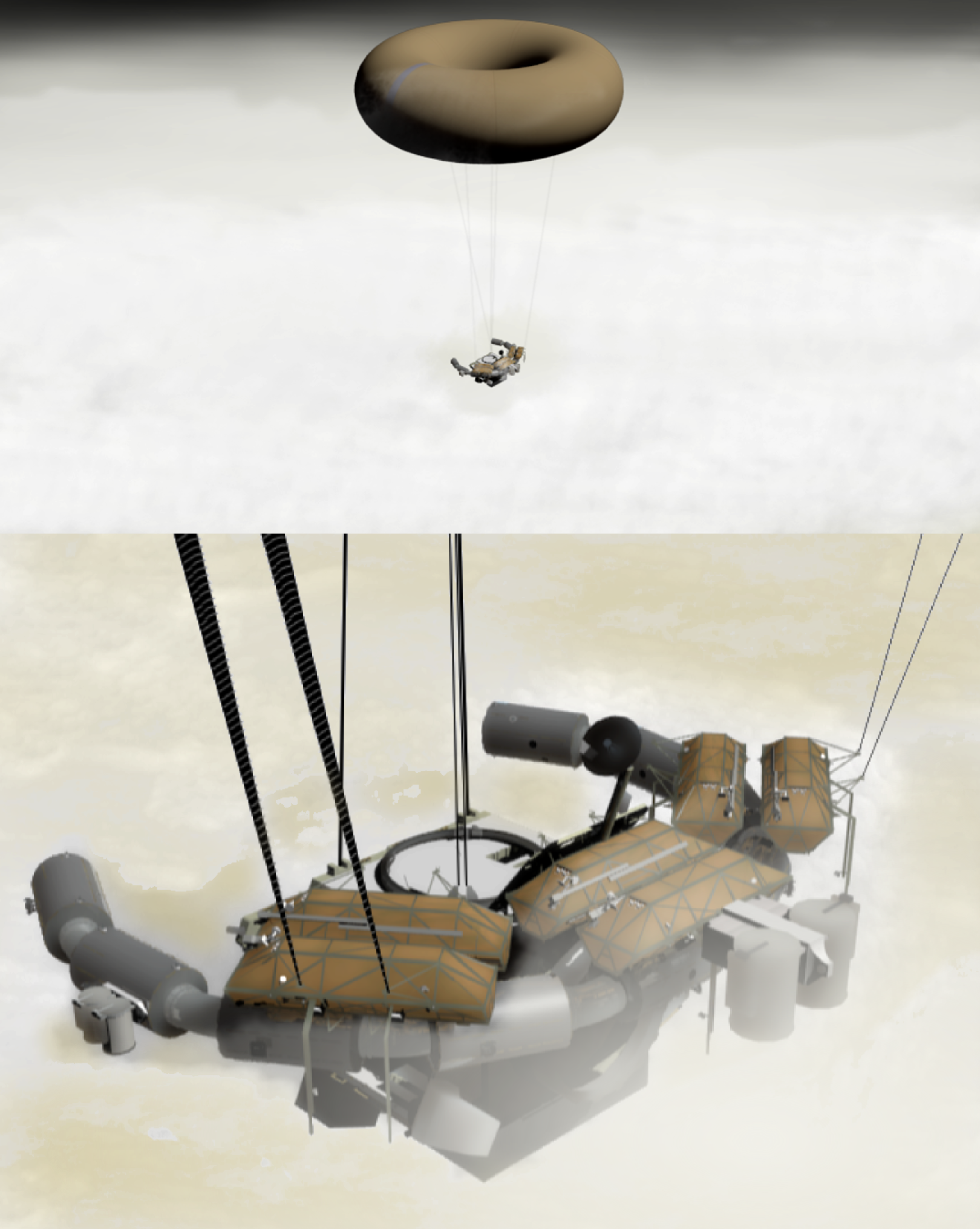Life on a Venusian world?
I define "Venusian world" to be high pressure, thick atmosphere, and high temperatures. Assume the atmosphere is similar to Venus, but whatever gets the same effect and supports life is fine.
I'm envisioning a six-limbed sentient species that's nearly blind and uses sonar to "see", and a primarily fungal-like plant life, with possibly some air-based floating life on the top surface, though small and non-sentient.
Would it be possible to have (water) oceans in this sort of planet and would it be possible to have water/carbon-based life forms?
This post was sourced from https://worldbuilding.stackexchange.com/q/9320. It is licensed under CC BY-SA 3.0.
1 answer
Here's some information about Venus:
-
Surface gravity:
-
Surface temperature:
-
Surface pressure:
So no liquid water on the surface.
Wikipedia also mentions later on that you have to get 50,000 meters in the air before conditions become something like Earth (i.e. temperature and pressure are somewhat survivable). That gives us a nice little loophole. A little searching on Wikipedia showed that someone else had had the same idea I had: floating colonies:
(Artist's rendering of a floating habitat)

Now we're getting somewhere.
Once more, I go back to my pufferpolyp, a floating creature that has an air sac carrying lifting gases. It floats along on its merry way, essentially staying at the same altitude for all its life (although when it dies, there's a chance its air sac will deflate and it will fall 50,000 meters to the surface, where it will be crushed and roasted).
Anyway, my life of choice is this pufferpolyp. Unfortunately, the amount of oxygen in the Venusian atmosphere is next to nil. Instead, there's plenty of
After a long time, if enough pufferpolyps are around, the upper atmosphere will turn to a less hellish mixture and could become an atmosphere of oxygen and nitrogen. Will the pufferpolyps die? Maybe; maybe not.
And if the pufferpolyps have been "deployed" by another race intent on aerial colonization . . . there's going to be a lot of changes happening soon.
There's no way that something as weird as a pufferpolyp could develop in such a hellish place. Most living things aren't born floating 50,000 meters in the air, and this is no exception. The things couldn't have floated up from the surface because they'd be squished in about 10 minutes down there. So my cop-out is that they've been put there by a race (humans?) intent on terraforming the planet, starting with the upper atmosphere.
That's not to say that it's impossible for things to live and evolve in the sky. Bacteria have been found living in our atmosphere; it's somewhat plausible that a similar thing happened on this planet, but the bacteria began evolving into multicellular organisms, eventually leading to the pufferpolyps.




















0 comment threads